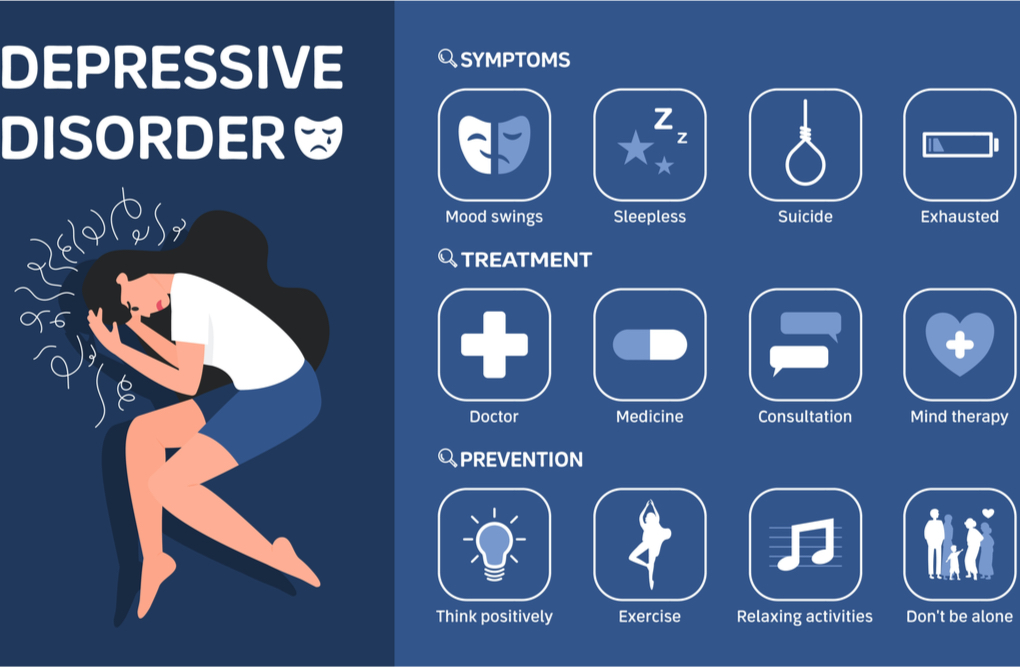Major depressive disorder is a severe mental illness prevalent in the United States. An estimated sixteen million Americans suffer from the major depressive disorder (MDD).
However, like many mental illnesses, major depressive disorder (MDD) may manifest in comorbidity, or when an individual has two or more conditions or diseases diagnosed simultaneously or one after the other.
Comorbid mental illnesses are especially challenging for individuals to manage, as they are frequently more resistant to treatment or complicated to pinpoint.
We understand that while depression may be challenging to deal with, it requires proven methodologies to renew life. At Long Island Neurocare Therapy, our TMS therapy approach provides a safe, drug-free path to better living.
TMS (Transcranial magnetic stimulation) is a non-invasive method that employs a magnetic field to stimulate specific brain regions. The FDA approved TMS in 2008, recognizing it as a safe and efficient treatment for symptoms of depression, such as those of major depressive disorder or treatment-resistant depression.
Patients may undergo this brain stimulation treatment at Neurocare Centers of America, Long Island Neurocare Therapy in the form of TMS sessions.
TMS employs a magnetic coil that sends magnetic impulses to specific brain areas, specifically the left dorsolateral prefrontal cortex, the region that regulates mood. This coil creates intense magnetic fields like a magnetic resonance imaging (MRI) scanner, which turns on and off very quickly, hence the magnetic impulses.

This action produces tiny electrical currents within the brain that activate nerve cells believed to produce dopamine, norepinephrine, and serotonin. Individuals suffering from depression have an imbalance of these neurotransmitters in the brain, which TMS (Transcranial Magnetic Stimulation) can potentially correct.
Assuming your healthcare provider correctly diagnoses you with a condition for which medical professionals recommend TMS treatment, this procedure is not likely to worsen symptoms of depression. On the contrary, clinical studies show that TMS therapy is effective even when other treatments for depression have failed.
Studies show that major depressive disorder and treatment-resistant depression respond positively to TMS therapy.
Nevertheless, many patients may experience a slight worsening of their depressive symptoms after a few sessions, generally in the middle of the treatment. This effect is brief and temporal, a “TMS fall.”
It is helpful to remember that TMS brain stimulation affects nerve cells that are underactive or inactive to understand why the “TMS fall” may be one of the effects of TMS and appears to worsen symptoms.
TMS activates these nerve cells, causing them to start communicating again. They release neurotransmitters, the chemicals that allow neurons to “chat” with each other. This communication, which was previously little or inexistent, creates new lines of communication.
However, the brain is not used to functioning in this new way and may need a short, and always temporary, period to adapt.
Most patients tolerate TMS well; it is safe and non-invasive. However, there are a small number of relatively common side effects that you should be aware of:
More pronounced side effects are infrequent but may include:
There are no significant risks in undergoing TMS therapy unless there are specific contraindications to the treatment because of an individual’s medical condition or background.
If you are considering undergoing TMS, you should inform your healthcare provider if you:
By creating new communication lines in the brain, TMS induces actual physiological changes in the patient, which help improve symptoms of depression.
As mentioned before, physicians recommend TMS when patients cannot find relief from symptoms using antidepressant medications.
Data show that approximately fifty to sixty percent of individuals who have tried CBT, psychotherapy, and medication without success, experience a clinically significant response with TMS. In addition, approximately one-third of these individuals experience complete remission (their depressive symptoms disappear entirely)
Because TMS targets the prefrontal cortex, the part of the brain linked to mood disorders, it goes directly to the source of the problem. And consequently, this gives lasting results: most patients feel better for several months after completing treatment, and many for up to a year.
When mental well-being is unstable, all aspects of our lives suffer. But when our mental health is vibrant, even life’s challenges seem more manageable.
At Long Island Neurocare Therapy, your health and well-being are essential to our success. Contact us today. We are here for you.
Copyright © 2024 | All Rights Reserved